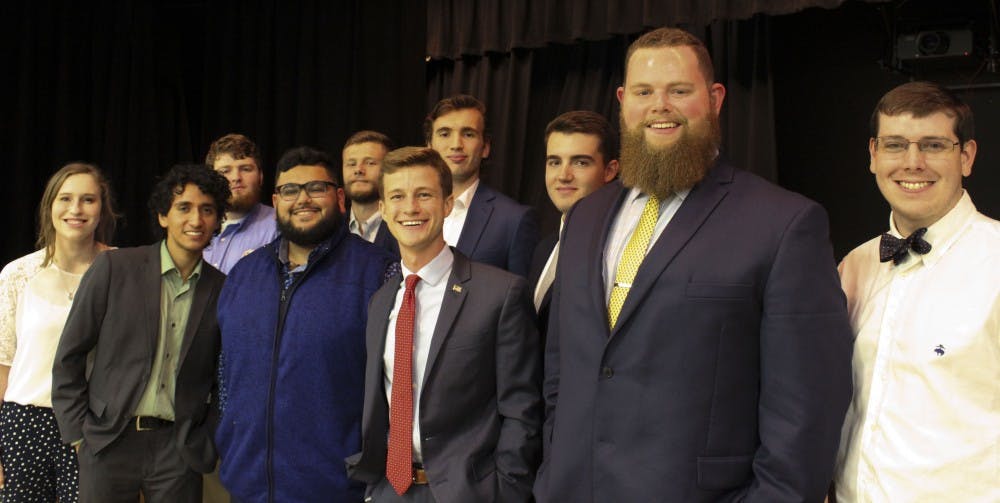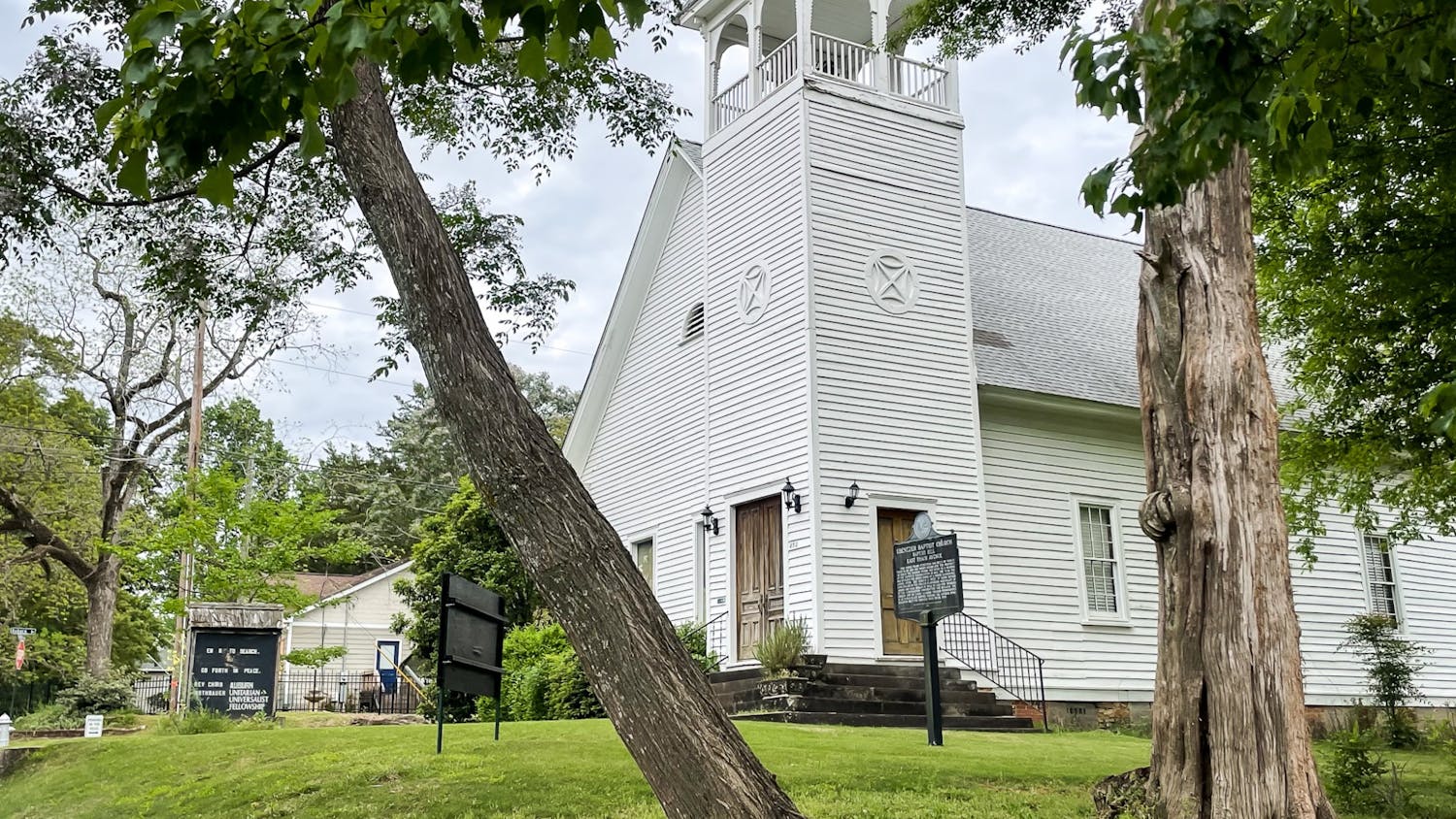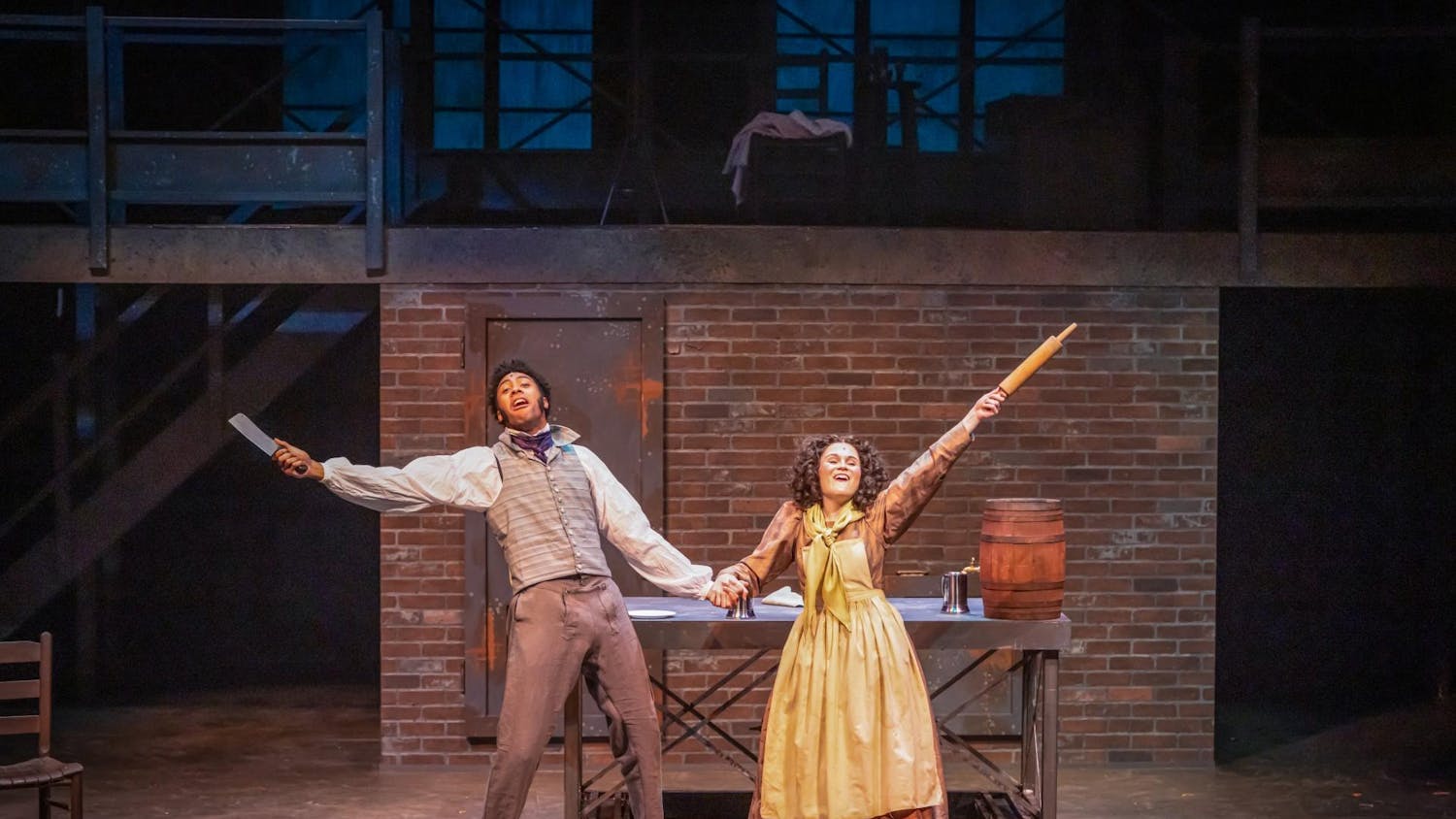Editorial
American colleges, especially since the 1960s, have a reputation for being centers of political action.
In the last five decades, students, young and indestructible, have taken to the streets to protest everything from the Vietnam War to the war in Iraq.
Auburn has certainly had these loud forms of political action — many protested when Richard Spencer spoke on campus in 2017 — but none of them have been massive or have lasted for an extended amount of time.
There is certainly a time and place for large-scale protests, but when dealing with political issues on a national scale, Auburn has done a good job of having civil, moderated debates instead of loud screaming matches.
For the past few years, this has taken shape as the annual Great Debate.
This year’s Great Debate, which took place last Tuesday, included four on-campus groups: College Republicans, College Democrats, Young Americans for Liberty and Young Democratic Socialists of America.
Questions for the debaters covered many of the largest political issues being discussed nationwide, including immigration policy, tariffs, healthcare and international relations.
As political voices continually trade jabs and soundbites on social media, in-person debates such as the one on Tuesday night, are essential to having a thoughtful and involved public.
These kinds of events encourage the debaters, moderators and audience to be knowledgeable of — and excited about — the political issues being discussed on the national level.
They have to be excited because it’s difficult for someone to be in front of an audience for two hours and talk openly about her or his political opinions.
It’s even harder to do that when that person has to express those opinions in two-minute-long answers to intentionally open-ended questions.
Not to mention, every other person on stage is patiently waiting to refute, expose, dispute and oppose every aspect of that person’s opinion.
To debate in public like this requires people to be brave, reasonable, self-aware and well-prepared.
Of course, like any form of public communication, there are inherent flaws with this kind of debate system.
There is a temptation to resort to zingers and punchlines rather than logical arguments. Some of the most important questions to debate have answers that can’t — and shouldn’t — be chopped down to fit into two minute time slots.
And oftentimes an argument is only as strong as the public speaking ability of the person giving it.
For instance, even though someone may have a well-researched and factually-correct argument, if she or he cannot plainly articulate that opinion, they may come off as ignorant or wrong.
This can be particularly present in college-aged debates because there is often a noticeable disparity between the amount of debate experience various participants have had.
Regardless, well-moderated and civil debate remains the best way for many organizations and individuals to define themselves to a broader public.
Furthermore, which ideas are represented at debates can, by themselves, give hints to larger narratives taking place in the country.
For instance, this is the first year that the Young Democratic Socialists of America have been in the Great Debate.
The existence of this club, which only founded its Auburn University chapter this year, shows a growing split between traditional neo-liberalism and more progressive — occasionally socialist — ideas.
That in turn can serve as a hint for how liberals and Democrats have reacted to a less traditional Republican president.
Overall, collegiate debates like the Great Debate are great opportunities for students to engage and challenge each other with large-scale issues.
And they’re certainly better than screaming matches on the concourse.
Collegiate debates are chances for people with questions to get answers and for the people who think they have the answers to be thoroughly questioned.
The following columns were written by the leaders of each organization in the Great Debate.
College Republicans
The Great Debate is one of the greatest events held on Auburn’s campus annually.
It’s an incredible opportunity for students to hear from those who share their views as well as to be challenged by opposing viewpoints.
Witnessing the leaders of the primary political organizations on campus come together for this event to engage in civil discussion on the issues facing our country and state provides us with hope for the future of politics during this challenging time of political polarization. We’re grateful that political leaders on our campus are willing to have these critical conversations.
During the debate, College Republicans delineated our position on a number of important current issues.
It is our belief that life begins at conception, and we will always advocate for the right to life of the unborn. We applaud the recent efforts of the Alabama legislature to protect human life in our state.
Our nation is a nation of immigrants, and we need hard working immigrants to continue to enter our country through legal pathways to contribute to our economy and help the United States be the best that it can be. However, we are a nation of laws, and we must have a secure border to prevent those who seek to do harm to our country and its citizens from entering.
A free market system is the best way to provide quality healthcare to the greatest amount of Americans. Forcing tens of millions of Americans off of their health insurance plans and mandating government controlled Medicare-for-All is not a viable solution and would be a reckless decision.
We enjoy every opportunity where we are allowed to share our conservative views with our peers on campus.
All are welcome to join us at our weekly Tuesday meetings in Dudley B6 at 5:45 p.m.to continue the dialogue we had at the debate and learn more about the Best Party On Campus!
College Democrats
I feel like the Great Debate was a resounding success for everyone, including the College Democrats.
We were able to make our case heard, and everyone was generally very civil.
It was intimidating, of course, being in a predominantly conservative room, but I never felt like we couldn’t state our opinions freely — they were being heavily challenged.
From a more personal point of view, debates like this are also important to show that Democrats have a strong presence on Auburn’s campus, and I feel like we showed a good side of ourselves throughout the debate.
The main takeaway that we tried to emphasize is ignoring sensationalized information about political issues — specifically ones like immigration or foreign policy.
Major news outlets will try to make flashy headlines to reel you in, but that’s only telling a very small portion of the story and can very easily distort what’s really happening.
It’s important to look at the numbers and the greater picture, and then decide.
Overall, the Great Debate was a unique opportunity to hear the opinions of Auburn’s political organizations and see what each of these sides have to say about issues affecting Americans today.
There aren’t very many times when Democrats, Republicans, Democratic socialists, and Libertarians are all in the same room debating each other.
Using times like this to ensure that people hear more than just one side of the dialogue about these topics is incredibly important.
For anyone interested in our meetings, College Democrats meets every other Wednesday in Student Center 2310 at 5 p.m.
Young Democratic Socialists of America
The Young Democratic Socialists of America at Auburn University believe that we upheld the ideas of everyone having the right to healthcare, anti-interventionism in foreign countries in terms of physical/economic warfare and a humane immigration policy.
Our mission is to educate and organize students, and to play a helpful and principled role in the movement for social justice.
There is no need for working people to go into a lifetime of debt for simple medical procedures.
To go forward, we must join the rest of the developed world and implement a universal healthcare system.
The decision for the U.S. to back out of the Iran nuclear deal which had opened up the diplomatic process between the two countries only serves to escalate tensions in the Middle East.
Any confrontation between the U.S. and Iran will be devastating to everyone involved, so it is imperative that we renegotiate a treaty and lift sanctions.
It is immoral to enforce tariffs against states that the U.S. wants to manipulate because it extends human suffering to the civilians of that country.
In addition, we must stop destabilizing countries, specifically in South America, so that immigrants are not forced to seek a better life in the U.S.
The U.S. must also accept the responsibility of repairing the damage that we have done.
This involves accepting refugees from these destabilized regions into the U.S. if they so wish to be a part of it.
Overall, we are happy to have voiced our stance on these issues and listened to what other groups had to say.
For anyone interested in our meetings, YDSA meets every Thursday at 6 p.m. in Student Center 2310.
Young Americans for Liberty
Our modern political climate offers very little in the way of unscripted, honest dialogue between different ends of the political spectrum.
As proponents of true liberty, the Young Americans for Liberty at Auburn University believe in the value of the open marketplace of ideas, and we are grateful to the College Democrats, College Republicans, and Young Democratic Socialists for coming together and being willing to aver their beliefs on public policy, economics, and culture in front of their peers.
One of the functions of the Great Debate is to serve as a hub for students who might not yet be associated with any political clubs to attend and become more informed on current topics that they might not otherwise receive exposure to.
At the Great Debate, the participating clubs were asked a series of questions on topics which we were able to choose from beforehand — this allowed students who spoke to prepare for questions on topics which they could somewhat anticipate — then the floor was opened for questions from the audience.
This was seemingly the best part of the debate. because it allowed the audience to convey their concerns through questions directly presented to the political clubs involved.
YAL isn’t necessarily the Libertarian club on campus — we don’t support any particular political party.
Instead, we are a non-partisan organization that welcomes ideas of true individual liberty for all people.
We also believe those ideas to have certain attributes, like economic freedom, free speech, free markets, private property ownership and non-coercion against peaceful people.
For anyone interested in attending our meetings, I openly welcome you, and we meet every Thursday in Shelby 1120 at 5:30 p.m.
Do you like this story? The Plainsman doesn't accept money from tuition or student fees, and we don't charge a subscription fee. But you can donate to support The Plainsman.





